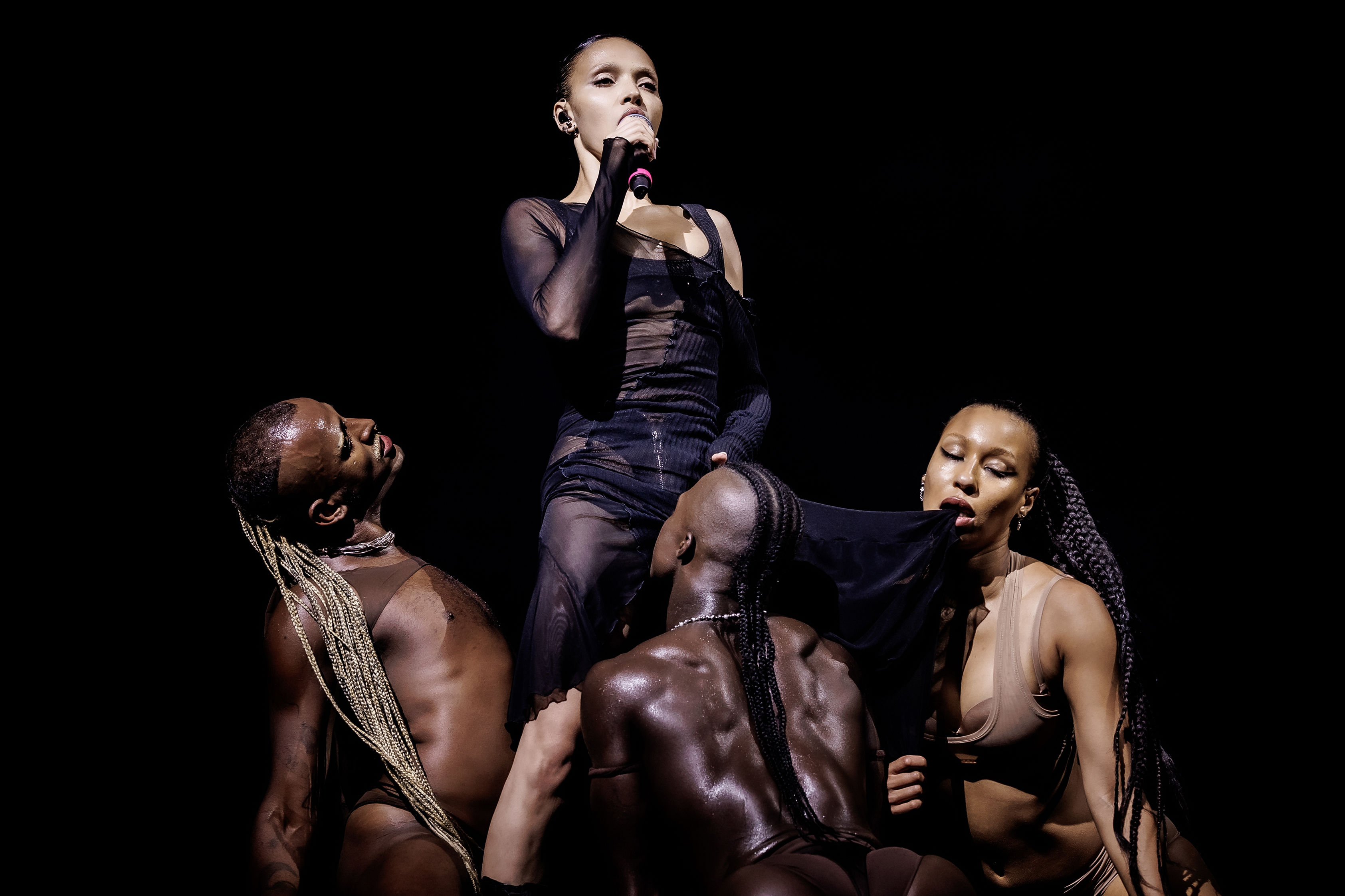Sarah McLachlan on Portlandia and Her New Album

Between her own music and the massively successful Lilith Fair Festival, Sarah McLachlan was one of the defining musical artists of the 90s. While her albums have been more spaced out in the 00’s, she’s continued to have a presence, from her song “One Dream” being the official theme song of the 2010 Winter Olympics in Vancouver (where she lives) to her animal advocacy. And now she’s back on the charts with a vengeance. Her newest, Shine On, just debuted at No. 4 on Billboard.
She’s also proved she’s got a sense of humor about her success, parodying herself both in the third episode of Portlandia and in a recent Superbowl Audi commercial, where a “Doberhauhau” (a highly disproportionate Doberman/Chihuahua blend) takes a bite out of her guitar while she’s entreating viewers for their support.
In preview of McLachlan’s return to Portland to play McMenamin’s Edgefield on June 22, we asked her about her spin on Portlandia as a piñata, Lilith Fair’s heyday, and the new album.
On the Town: Your guest appearance on Portlandia with Aimee Mann remains one of my all time favorites—so unexpected, so perfect. In many ways, I feel like that episode put the show on the map. How did you end up on the show, and what was the experience like? I mean, you had to watch them break a piñata in your effigy!
Sarah McLachlan: It was really fun for me. They called me up and asked, and this felt like a bit of a stretch for me, as I don’t have any aspirations to act but I thought it would be a challenge. Aimee was lovely and put me at ease. I actually didn’t get to see them destroying the piñata… I only heard about it.
Did doing it send you on the path to your satirical performance in the Superbowl Audi commercial?
It certainly helped me to feel comfortable knowing that I had done something similar and really enjoyed the experience, yes.
You’ve said you started Lilith Fair in 1997 because concert promoters and radio stations at the time wouldn't book two female artists in a row. How far have we come since then, and what role did Lilith Fair play?
Well, that was one of the reasons. It was also that there was a wealth of great talent coming up from so many different genres of women-fronted music, yet it wasn’t being well represented, at least not in the festival market.
And it certainly put fuel on the fire when we started organizing having guys say, “you can’t do that, people won’t come to see more than one woman at once,” which of course, I thought was ridiculous. The strength of our numbers and quality of music really put many of us on the map in a whole new way.
Sarah McLachlan
McMenamin’s Edgefield
June 22
Sold Out
But I will say that at the end of those three great years, it felt as we ended the festival, the pendulum was swinging a new way towards bubblegum pop—boy- and girl-band—and pop music shrunk to become a very tailored and homogenized format.
Music is cyclical, and I think people are, again, leaning towards wanting and needing music to be more than just a well crafted pop song, and more people are looking for depth and meaning in their music.
Your song “One Dream” was the official song of the 2010 Winter Olympics and focuses on hope for kinder times and leaving dissent behind. Instead of hope this year in Russia, there was a crackdown on dissent. How did it affect your feelings about the Olympics, and what was it like to watch the news coverage (and even what's unfolding in Ukraine) having written your song?
I think that it is very troubling and sad that the Russian government has the antiquated attitude that they do around sexual equalities, and I have to say I was relieved I didn’t get asked to go. It’s hard because, of course, you want to support the athletes, but at the same time what was taking place behind the scenes is not something I could support.
The NY Times said 2010’s Laws of Illusion "encompasses a new anguish, deeper and sharper than what she hinted at with Afterglow in 2003." You said that Shine On is inspired by your father's passing. Does it continue the deeper, sharper path Illusion started to tread, or does it take a different direction.
It is, in part, inspired by my father’s passing, but there are many other important elements as well. The accumulation of losses and that journey of how to rebuild and not just endure but shine. And yes, I think it is closer to the bone.
In the past, I’ve often veiled ideas that were too close to me by creating parallel universes or other creative story lines, and this time I think it’s generally pretty obvious what I’m talking about—the lyrics are more direct and raw.
I write from an emotional point of view and these songs really represent not only where I’ve been, but where I want to go.




